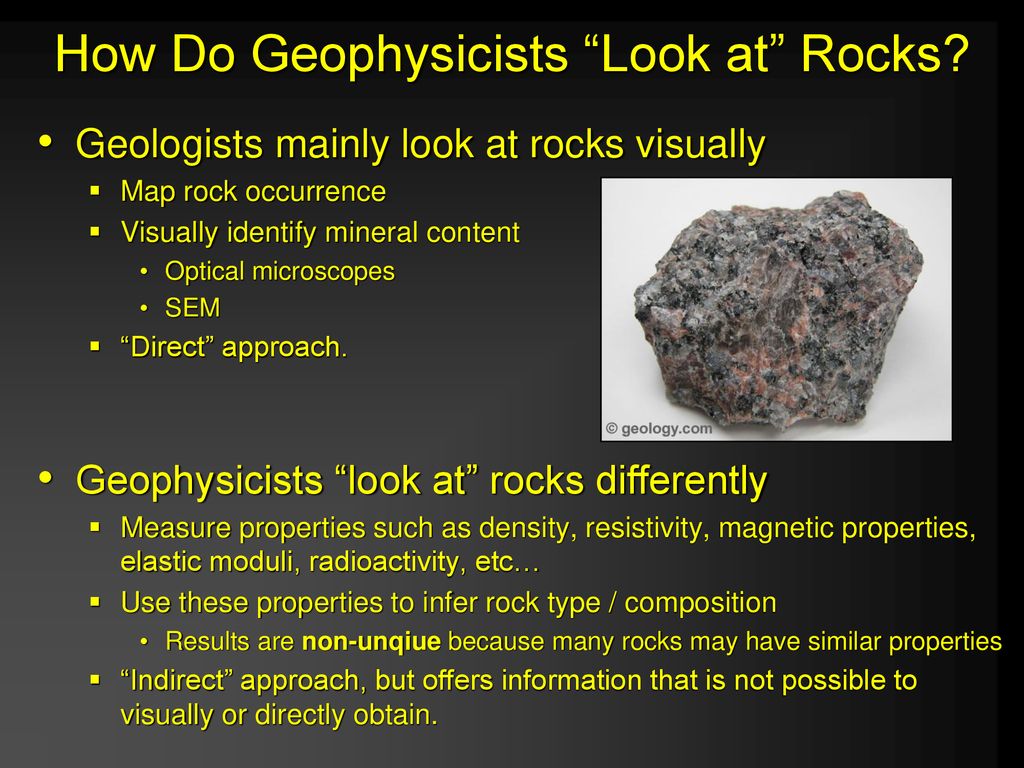All Categories
Featured
Table of Contents
Geophysical Survey Methods in North Fremantle Aus 2022

Other possible geophysicist majors that aren't geophysics or geoscience include: Climatic sciences and meteorology Chemical and physical oceanography Earth science Environmental science Hydrology and water resources science Materials science By earning any geophysicist degree, and by taking the necessary geology courses, you ought to get approved for an entry-level position as a geoscientist or geophysicist.
Ultimately, students should learn: a branch of geology that takes a look at the different aspects of minerals, consisting of chemical structure, internal crystal structure, and physical residential or commercial properties. the study of rocks and the processes and conditions that form and change them gradually. There are a few neighborhoods in this branch of geology, consisting of igneous, metamorphic, and sedimentary rocks.

This field examines structural rock features such as cleavage, faults, joints, and little folds. They need to also learn the computer skills required to: examine information produce digital models and maps run geoscientists' software application Students ought to also benefit from all chances to acquire real-world experience. Hopeful geophysicists need to anticipate to hang around knowing: in the classroom in the field in labs Clearly, skills taught in the class are extremely important for aspiring geophysicists.
Geophysicist: Job Description, Duties And Requirements in Armadale Oz 2021
Geoscientists invest a lot of their time outside when working in the field, so they must have "outside skills" like camping and operating boats, aircraft, and other vehicles. Since they spend so much time in remote places, it's essential that geophysicists likewise have the physical endurance to bring required equipment on their hikes to locations of research study.
The job uses: a high median and leading profits a high rate of personal fulfillment amongst geophysicists low work stress favorable task outlook More info on earnings capacity and task outlook is detailed below. For trainees looking to land an entry-level role as a geoscientist or geophysicist, it takes 4 years, or the time needed to complete a bachelor's degree in geophysics or an associated discipline.
Some research positions in geophysics require doctoral degrees. Also, if you plan to teach at a college or university, you must earn a Ph - Geophysical Surveys For Petroleum in Nollamara WA 2023. D. in geophysics or a related field. The time it takes to make a Ph. D. differs by organization and program, however it generally takes 4 to 6 years beyond the bachelor's degree.
Geoscience, Geophysics Option, in Straffon Aus 2023
Many companies require prospects to have a bachelor's degree in geophysics or a carefully associated discipline for all entry-level positions. And, in some cases, companies need a master's degree. As a result, there's no chance around the degree requirements for becoming a geophysicist. Most employers will anticipate or require a practicing geologist to be licensed for positions beyond those at the entry level.
Presently, 31 states require licensing for geologists, although licensing is not constantly required, especially for entry-level work. The states that do problem licenses use the Fundamentals of Geology Exam (FGE), which is administered through the National Association of State Boards of Geology (ASBOG). Now that you understand which degree for geophysicist jobs you require, you'll require to land a job, and it is necessary to find out how much cash you can make in this profession.
According to BLS, the average yearly wage for geoscientists is $93,580. According to BLS, certain markets use greater salaries for geoscientists, and in some cases, they offer higher-than-average incomes.
Geophysical Survey in Salter Point WA 2021
In truth, mining, quarrying, and oil and gas extraction uses over $32,000 more every year than the average yearly wage for this occupation. The federal government, too, uses over $10,000 more in earnings than the national average for geoscientists. In addition to market type, geographical place can greatly impact incomes for this profession.

The top-paying states and their annual mean incomes, according to the BLS, consist of: Texas $166,720 Oklahoma $149,630 Pennsylvania $120,590 Hawaii $120,130 Colorado $107,260 These 5 top-paying states offer much greater wages than the average for this profession. In reality, wages for geoscientists in Texas are over $73,000 greater than the nationwide average.
It ought to come as no surprise that the majority of these high-paying locations remain in Texas and Oklahoma, however some are discovered in California, Louisiana, and Colorado. The leading 10 highest-paying metro areas for geoscientists are: Houston-The Woodlands-Sugar Land, Texas: $188,400 Tulsa, Oklahoma: $186,490 Midland, Texas: $167,040 Odessa, Texas: $147,080 Oklahoma City, Oklahoma: $145,350 Bakersfield, California: $130,080 Urban Honolulu, Hawaii: $124,470 New Orleans-Metairie, Louisiana: $121,030 Washington-Arlington-Alexandria, DC, VA, MD, WV: $120,180 Denver-Aurora-Lakewood, Colorado: $116,910 For some geoscientists and geophysicists, living in a metro city is not as appealing as residing in a smaller community.
Table of Contents
Latest Posts
Geophysics, Engineering Geophysics And Applied ... in Carmel Western Australia 2023
Airborne Geophysical Surveys Of The Lower Mississippi ... in Balcatta Oz 2022
Working As A Geophysicist And Oceanographer In Canada in Cannington Australia 2023
More
Latest Posts
Geophysics, Engineering Geophysics And Applied ... in Carmel Western Australia 2023
Airborne Geophysical Surveys Of The Lower Mississippi ... in Balcatta Oz 2022
Working As A Geophysicist And Oceanographer In Canada in Cannington Australia 2023